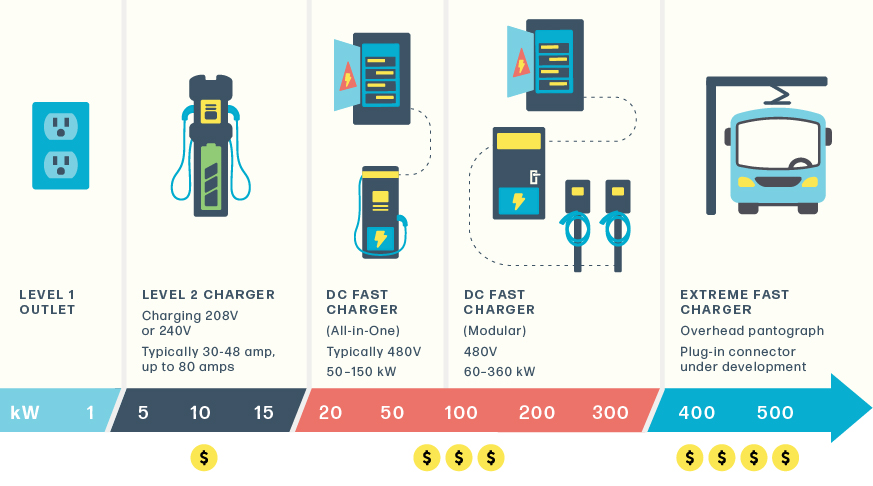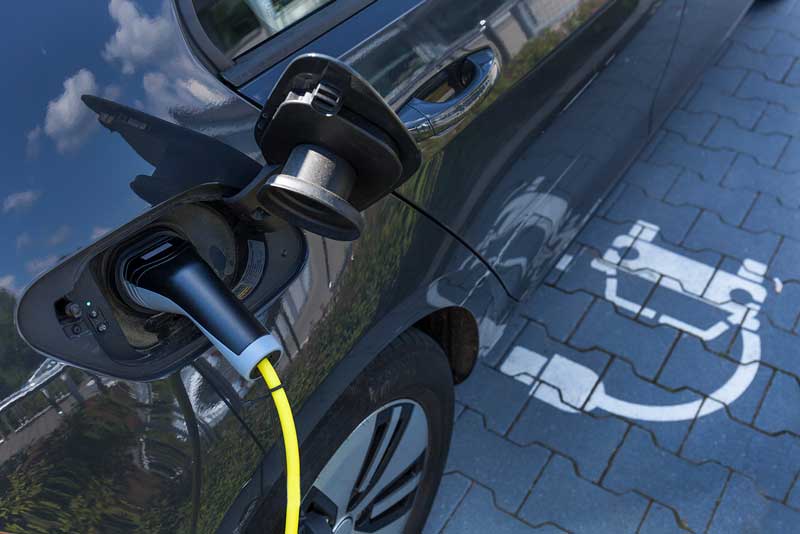
Electrify Your Fleet
We make the road to the clean energy future easy to travel.
Get your fleet moving towards a clean energy future
Switching your business' vehicles to electric can cut operating and maintenance costs while boosting sustainability. No wonder more companies are making the move to electric!
Fleet Total Cost of Ownership tool
An electrified fleet can help you meet your organization's cost and environmental goals. The PGE Total Cost of Ownership tool will help you calculate the fuel savings and environmental impact of using electricity as a transportation fuel.
Explore the PGE Fleet Partner program
Thinking about going electric with your fleet? We're here to help. With free expert advice, custom incentives, and full design and build services, we'll work with you to set up the right infrastructure, save money and make the switch easy.
Charging equipment
Different types of electric vehicles require different levels of equipment. Depending on your fleet, you may need Level 2 chargers, DC Fast Charging (DCFC) or Extreme Fast Charging (XFC).

Estimated time to charge
| Fleet Category | Class 2-3 delivery vans |
|---|---|
| Type of Charging | Level 2 |
| Recommended Speed* | 11kW |
| Charging Time | 6-10 hours |
| Fleet Category | School buses |
| Type of Charging | Level 2 |
| Recommended Speed* | 19kW |
| Charging Time | 6-10 hours |
| Fleet Category | Transit buses |
| Type of Charging | DC |
| Recommended Speed* | 50-100 kW |
| Charging Time | 6-10 hours |
| Fleet Category | Short-haul tractors and box trucks |
| Type of Charging | DC |
| Recommended Speed* | 50-100 kW |
| Charging Time | 6-10 hours |

Get a rebate for your business EV charger
We provide financial incentives to provide charging stations and help encourage EV adoption at your workplace or commercial property.
Save money right from the start
Not only do electric vehicles cost less to operate, but there are also substantial rebates and incentives that save you thousands of dollars when you purchase or lease your new EV. Rebates and incentives vary depending on vehicle model and purchase dates. You can find the latest information here.
Rebates and incentives
Federal EV Tax Credit – Up to $7,500 tax credit for the purchase of most new and used electric vehicles.
Oregon Clean Vehicle Rebate – Up to $2,500 rebate on light-duty electric vehicles with a base MSRP below $50,000. Businesses can receive up to 10 rebates per calendar year.
Oregon Clean Fuels Program: Advance Crediting – Provides up to 6 years’ worth of clean fuels credits upfront to transit agencies, school districts, public fleets, and fleets that are contracted with those entities. Credits can be sold upfront to help cover the cost of EVs.
Oregon Diesel Emissions Mitigation Grant Program – A competitive grant program for replacing older diesel vehicles (2009 or older) with new cleaner vehicles, like EVs.
PGE Drive Change Fund – A competitive grant program for transportation electrification projects that benefit the community. Funds can cover the cost of electric vehicles, but preference is given to public or non-profit organizations.
PGE Electric School Bus Fund – Provides funding to school districts (or their transportation contractors) to cover the incremental cost of electric school buses and charging infrastructure using funding from the Oregon Clean Fuels Program , thanks to PGE customers who charge their EVs at home. Also provides technical assistance to districts throughout the process. We are excited to once again partner with public school districts in our service area to help bring electric school buses to Oregon.